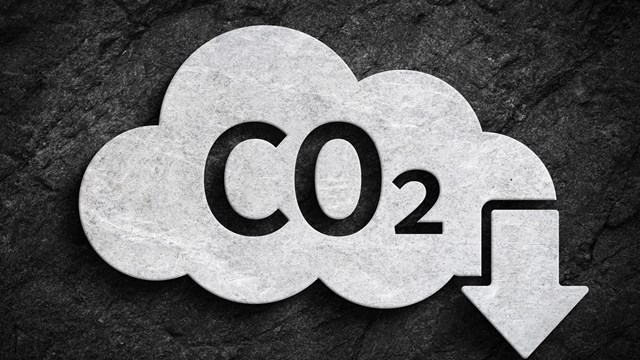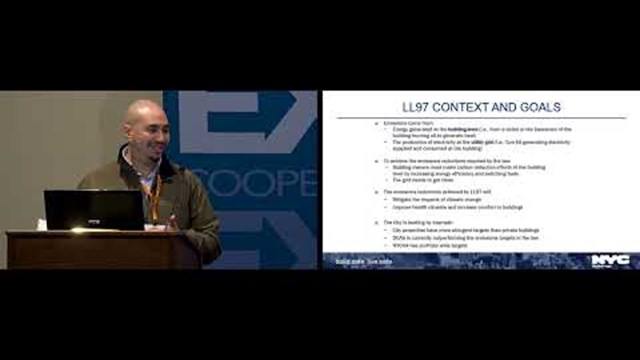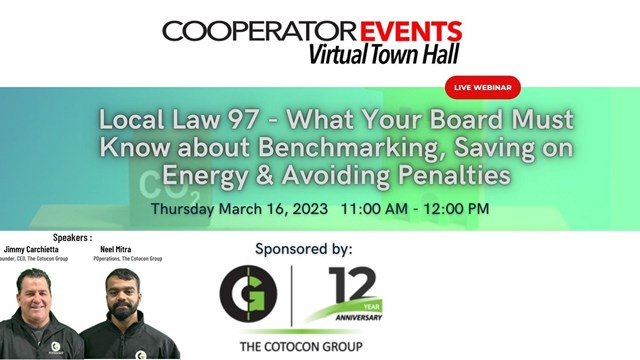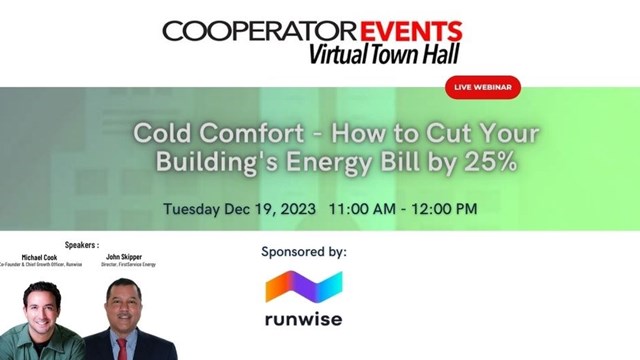Local Law 97 (LL97), intended to make New York City a carbon neutral oasis by 2050, is both an ambitious and commendable attempt to bring a city born in the nineteenth and twentieth centuries into the twenty-second. It also places a substantial burden on individual property owners - in many cases small owners, including condominium owners and co-op shareholders.
In brief, LL97 aims to achieve a 40% reduction in the city’s greenhouse gas (GHG) emissions by 2030. Like its precursor Local Law 95, LL97 requires buildings over 25,000 square feet to meet new energy limits, with condos and co-ops assigned different emission limits based on occupancy group. Starting in 2025, buildings must submit an annual emissions report stamped by a registered architect or licensed engineer, with steep fines for being over the limit, or for failing to meet the filing deadline.
(Buildings larger than 25,000 square feet must also conduct annual energy benchmark reporting to comply with Local Law 84/133). Benchmarking is a process of measuring, tracking, and reporting buildings’ energy and water consumption.
The terms and requirements of the law can be both daunting and expensive, and major compliance milestones are looming.
Have a Plan
Long-term compliance with LL97 cannot be achieved by treating each designated milestone with half measures or temporary piecemeal fixes - an expensive reality that has many boards and their constituents feeling stressed.
One approach to tackling your building’s needed work is to set out a project timeline as a kind of roadmap to LL97 compliance. This map should determine what condition your property is in now, and what needs to be repaired, replaced or upgraded by what date in order to comply with the law’s stages of implementation. Working in this organized, strategic way will not only help buildings meet the compliance deadlines, but allows the costs associated with compliance to be spread out over a period of time that’s workable for the community.
But the time to act is definitely now. “Buildings may benefit by retaining early on an experienced envelope consultant,” says Giulia Alimonti, vice president for building envelopes for Entuitive, a Canadian building engineering and consulting firm with offices in New York. “It’s critical to prepare a property condition assessment with a capital project budget, delineating the recommended capital improvements to the building envelope to be implemented over a period of years, and coordinated with the electrification of the building’s systems, to reduce carbon emissions. The building envelopes will be a passive system that helps the building reduce the heat and cooling loads. These loads will be shifted from gas or oil to electric.”
Face the Music
Alimonti goes on to explain that shared communities such as co-ops and condos in particular should have a capital assessment program prepared by an experienced building envelope consultant and aligned with a capital budget that explicitly identifies and accounts for carbon reducing strategies. This not only provides a battle plan for the present board and residents, but lays things out clearly for their successors, helping to avoid unexpected large assessments and other crises that could likely result from a ‘head-in-the-sand’ approach to LL97.
“Completing an exterior envelope analysis is done by using Thermal Energy Demand Intensity (TEDI ) or other energy analysis tools,” explains Alimonti. The analysis considers the construction of the exterior walls, windows and roof, their insulation, type of cladding materials, thermal bridges (exposed slab edges, balconies, water-tables, etc.) and can help provide options to improve the exterior envelope and reduce the demand for heating and cooling.”
Once this analysis has been completed, a better, more comprehensive picture of how to reduce energy costs and comply with LL 97 requirements will emerge. The cost of such a study depends on the square footage of the building and the number of units in the building. Alimonti notes that “A capital budget plan typically covers ten years, but given the LL97 requirements, we would advise for a longer 20-year term to be sure to capture the various phases of implementation of the LL97 CO2 reductions to offset fines.”
Local Law 97 is here to stay. So are the co-op and condo communities of New York. To preserve and improve both our city and our communities, a building envelope analysis is a good place to start. This of course only scratches the surface of what it will take to bring NYC’s emissions to net zero by the proposed deadline - but it at least gets the conversation and needed upgrades and retrofits underway. It’s also important to keep in mind that compliance with the city’s sustainability laws may be mandatory, but it’s also beneficial to boards and residents. Buildings that fail to meet the emissions limits set by the city risks huge fines, high energy bills, and poor optics in a time when sustainability and energy efficiency are priorities for many prospective residents. That can result in slower sales, and even reduced property values.
First in a series of articles. Next up: how best to tackle window and radiator replacement - building wide, or individually by unit?










Leave a Comment